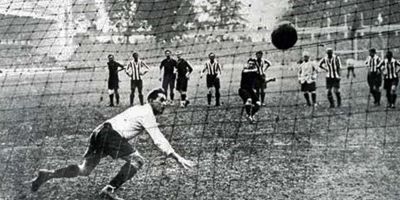OPPOSITION HISTORY FEATURE
Despite coming close, Belgium are yet to win either the FIFA World Cup or UEFA EURO.

Semi-finalists at the World Cup in 1986 and 2018 and EURO finalists in 1980, the ultimate prize has continued to elude different generations of the Red Devils. However, Olympic success was achieved when the Belgian city of Antwerp hosted the games back in 1920, even if the final was clouded in controversy.
With 15 nations entering the competition, Belgium were awarded a bye in the opening round, while France also progressed without playing their first match after Switzerland withdraw on the morning of the competition and forfeited their place. It was clear then that this would not be a straightforward tournament. Spain defeated Denmark 1-0 to setup a quarter-final match against Belgium, and a hat-trick from Robert Coppée earned the hosts a 3-0 victory.
The Netherlands were subsequently eliminated by Belgium in another 3-0 victory at the semi-final stage through goals from Henri Larnoe, Louis van Hege and Mathieu Bragard in front of a reported crowd of over 22,000. A match against Czechoslovakia would decide which nation would claim the gold medals, and controversy ensued as the Czechs made the decision to walk off the field in protest at the officiating of English referee Mr John Lewis.
Ejecting Czechoslovakian defender Karel Steiner for a reported assault on Coppée after 39 minutes, the Czechs were already riled by the decision to allow Larnoe's dubious second goal on the half-hour mark to put Belgium 2-0 ahead to stand. Disqualified from the tournament for their actions, Belgium were awarded the gold medal, while a mini-tournament involving Spain, Italy, Sweden and Norway would decide which team would play the Netherlands for silver. This was eventually claimed by Spain following a 2-0 win over Italy in the mini-tournament final and a subsequent 3-1 win over the Netherlands.
Although the majority of the Belgian squad that won gold in Antwerp made little impression on the professional game, there were exceptions. Van Hege would become the highest-profile player in that Olympic squad, as the striker had already scored an incredible 98 goals in 91 appearances as captain of AC Milan between 1910 and 1917. He would then represent Belgium at the 1932 Winter Olympics as part of the Bobsleigh team.
Meanwhile, Fernand Wertz would represent Antwerp and Standard Liege, and continued to play in the lower levels of the Belgian pyramid over the age of 50. Goalkeeper Jean de Bie would make almost 300 appearances for Racing Club of Brussels, while Fernand Nisot had already claimed an international record that still stands today. In 1911, Nisot became the youngest-ever senior international for the Belgian national team at the age of 16 years and 18 days when he played in the 7-1 win over France in Brussels.














